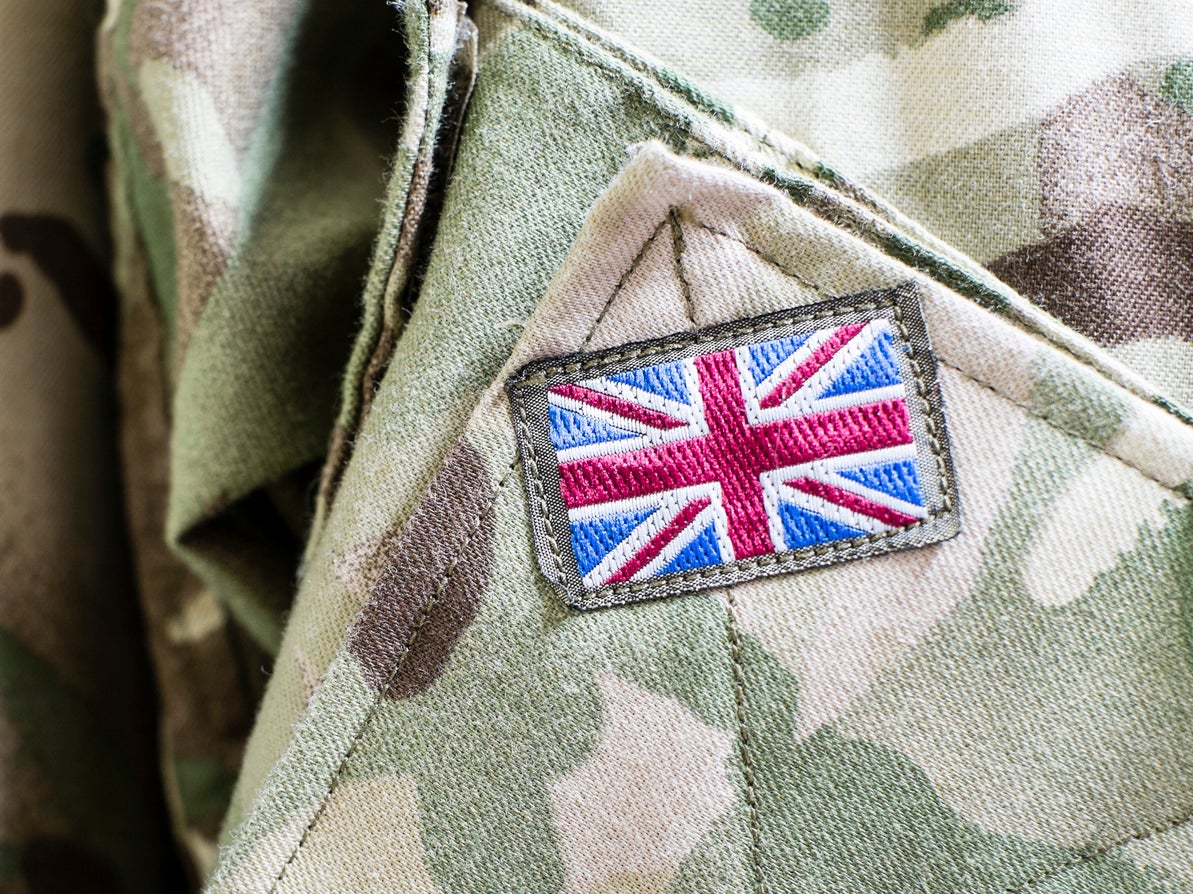First member of UK Armed Forces killed in anti-Isis operations in Syria by improvised explosive device
American serviceman also killed in IED blast that wounded five others

Your support helps us to tell the story
From reproductive rights to climate change to Big Tech, The Independent is on the ground when the story is developing. Whether it's investigating the financials of Elon Musk's pro-Trump PAC or producing our latest documentary, 'The A Word', which shines a light on the American women fighting for reproductive rights, we know how important it is to parse out the facts from the messaging.
At such a critical moment in US history, we need reporters on the ground. Your donation allows us to keep sending journalists to speak to both sides of the story.
The Independent is trusted by Americans across the entire political spectrum. And unlike many other quality news outlets, we choose not to lock Americans out of our reporting and analysis with paywalls. We believe quality journalism should be available to everyone, paid for by those who can afford it.
Your support makes all the difference.The first member of the UK's armed forces has been killed in Syria after being hit by an explosion from a suspected Isis mine.
It is the first death of British service personnel since an international coalition launched operations against the terrorist group in 2014.
A spokesperson for the Ministry of Defence said: “It is with regret that we must confirm that a member of the UK Armed Forces was killed by an improvised explosive device in Syria yesterday.
“The individual was embedded with US forces on a counter-Daesh operation when the incident occurred.
“The family has been notified and our thoughts are with them at this difficult time.
“We cannot confirm any further details at this stage.”
US Central Command said the improvised explosive device (IED) detonated at around 9pm GMT on Thursday, also killing an American serviceman and wounding five others.
"Wounded personnel received immediate care and are being evacuated for further medical treatment," a spokesperson added.
"Details pertaining to the incident are being withheld pending further investigation."
The explosion is reported to have taken place in the town of Manbij, 60 miles north east of Aleppo and close to the border with Turkey.
Isis has has peppered roads around its remaining strongholds, as well as former territory, with IEDs and mines.
The same technique has been favoured by other insurgent groups including al-Qaeda in Iraq and the Taliban in Afghanistan, where many of the 456 British personnel killed lost their lives to roadside bombs.
Two British volunteers with the Kurdish YPG have already been killed in explosions while clearing devices in Syria.
Oliver Hall and Jac Holmes, both 24, died within weeks of each other in Isis’ former capital of Raqqa late last year.
They are among eight British anti-Isis volunteers killed, while an unknown proportion of around 800 jihadis who travelled to the so-called Islamic State from the UK have died.
The government's intervention against Isis was initially limited to air strikes, which continue in Syria and Iraq.
But the mission, codenamed Operation Inherent Resolve, expanded into training and supporting local troops on the ground including the Iraqi army, Kurdish Peshmerga and Syrian Democratic Forces.
Special forces units are known to be on the ground in Syria but officials have refused to comment on their activities.
The American military says Isis has lost 98 per cent of the territory held at the peak of its self-declared caliphate in Iraq and Syria.
Addressing the House of Commons on Thursday, the International Development Secretary Penny Mordaunt confirmed that the UK will remain member of international coalition to “prevent Daesh remerging elsewhere”.
“Our work is not yet done, Daesh still holds pockets of territory in Syria,” she added. “With its loss of territory, it will still pose a threat as an insurgency, they will continue to try to direct and inspire terror attacks around the world.”
Isis, which originated as al-Qaeda in Iraq before splitting following an internal power struggle, has expanded into countries including Libya, Afghanistan and Egypt.
With the loss of territory, it has intensified efforts to inspire terror attacks around the world and claimed responsibility for a deadly siege at a supermarket in France this week.
There have been concerns that jihadis will profit from infighting between the forces that once opposed it in northern Syria, where Turkish forces are pushing back US-backed Kurdish groups that drove Isis out of the region last year.
Join our commenting forum
Join thought-provoking conversations, follow other Independent readers and see their replies
0Comments